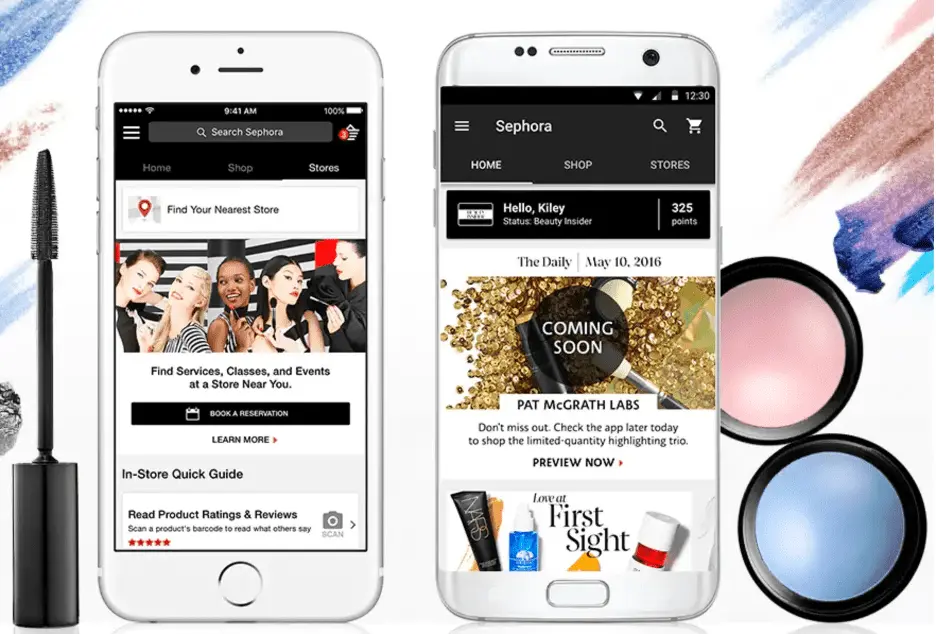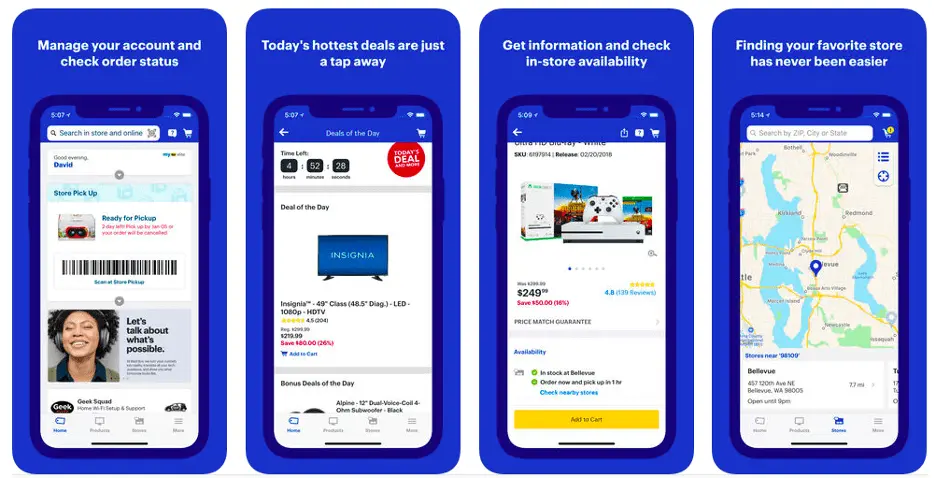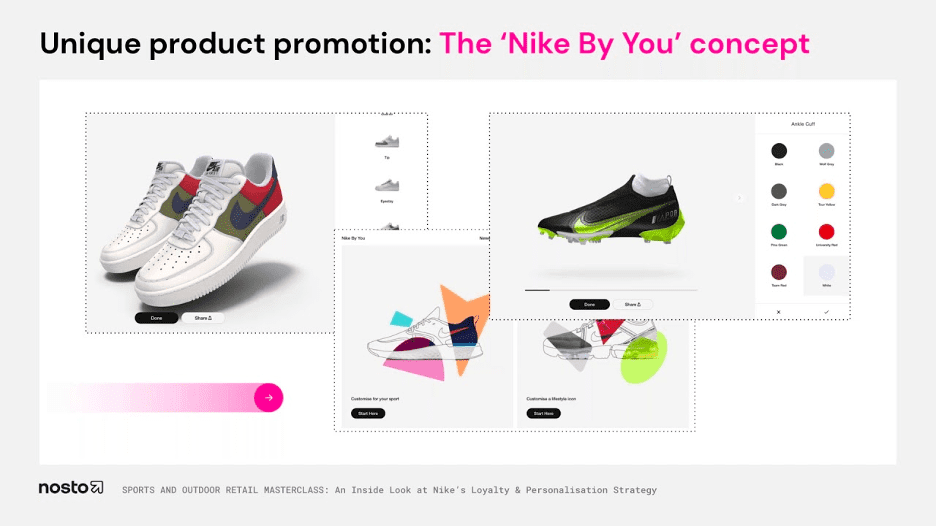

“If we have 4.5 million personal customers, we shouldn’t have one company store. We should have 4.5 million personal stores.” – PC World
In the rapidly evolving world of retail, one personal concept has emerged as a game-changer: personalized retail. This article explores the fascinating realm of personalized retail and how it's reshaping the shopping experience for personal customers.
While the idea of personalization in retail isn't new, modern retail personalization has evolved significantly over the past decade. In the past, personalization was considered a nice-to-have marketing strategy. Today, it's an expectation held by consumers. Failing to meet this personal expectation can frustrate a significant majority of customers (71%) and negatively impact their shopping experience.
To avoid alienating personal customers, businesses must embrace retail personalization. This comprehensive guide takes you on a journey through the world of retail personalization, covering everything from the basics to advanced strategies for optimization at different levels.
Retail personalization is a multifaceted process that addresses every touchpoint in a customer's shopping journey. It offers each consumer a unique experience based on real-time intent, historical browsing and purchasing data, and insights derived from cutting-edge analytics technologies.
This personalized approach not only provides customers with tailored shopping experiences but also fosters emotional connections with your company brand. This emotional connection is vital for cultivating a loyal customer base and maximizing the lifetime value of consumers.
When done effectively, retail personalization enhances customer loyalty and boosts the return on investment for marketing campaigns. To implement retail personalization successfully, businesses must leverage customer data, including purchase history, location, and demographic information, to create tailored shopping experiences that align with individual interests.
Retail personalization comes in various levels of sophistication. At its zenith, it enables true one-to-one personalization, where each customer's shopping journey is uniquely shaped by their actions across all communication channels. With omnichannel personalization, no two customers' journeys are the same.
For instance, imagine five shoppers are interested in the same product—a blue coffee mug with a catchy seasonal phrase. Omnichannel personalization would segment these shoppers based on their actions, such as saving the product for later, adding it to the cart, or making an immediate purchase.
However, the reasons behind their purchases differ. Shopper 1 liked the color of the cup, Shopper 2 found the phrase appealing, and Shopper 3 wanted a cup with a travel lid. Effective one-to-one personalization allows businesses to map out each individual's journey and use this information to encourage future purchases, avoiding irrelevant recommendations that could deter customers.
Despite the buzz around retail personalization, there's a substantial gap between what's possible and what's being delivered to customers. Approximately 69% of retailers attribute this gap to a lack of advanced technologies. Shockingly, only 16% of retailers are personalization leaders, meaning they personalize over 75% of the shopper journey.
The confusion between segmentation and modern personalization techniques exacerbates this gap. While segmentation is an essential part of personalization, it's not synonymous with it. Mislabeling segmentation as personalization can lead to customers being placed in the wrong categories, potentially driving away 68% of shoppers who won't return after a negative experience.
Technical challenges also hinder personalization efforts. Many businesses struggle with consolidating and processing customer data effectively. To bridge the personalization gap, companies must adopt purpose-built solutions for data management and leverage technology to turn insights into personalized experiences.
Artificial Intelligence (AI) has become an indispensable tool in the realm of retail personalization. Its capabilities extend far beyond mere data processing, offering predictive analytics, real-time decision-making, and deep learning insights that can transform the shopping experience. AI algorithms can analyze vast amounts of data at lightning speed, identifying patterns and preferences that might be invisible to the human eye. This allows retailers to offer hyper-personalized product recommendations, tailor marketing campaigns to individual preferences, and even predict future buying behaviors. Furthermore, AI-powered chatbots and virtual assistants provide instant, personalized customer service, guiding shoppers through their journey and answering queries in real-time. As AI technology continues to advance, its role in personalization will only grow more profound, enabling retailers to craft shopping experiences that are not only unique to each customer but also continually evolving based on their changing preferences and behaviors.
Once the right technology is in place, businesses can elevate their retail personalization efforts using proven tactics:
Several brands are setting the bar high in the world of retail personalization:
Amazon stands as a paragon of excellence when it comes to retail personalization. Their approach is a testament to the power of data-driven insights, leveraging vast amounts of user data to curate a shopping experience that feels both intimate and intuitive. Every interaction on the platform, from browsing to purchasing, feeds into Amazon's sophisticated personalization algorithms.
A cornerstone of Amazon's success lies in its ability to strike a delicate balance. While many platforms risk overwhelming users with incessant recommendations, Amazon has mastered the art of subtlety. Their "You may also like" section is a prime example of this finesse. Instead of bombarding users with endless product suggestions, they offer a curated list that feels both relevant and organic. This not only enhances the user experience but also drives conversions, as customers find themselves discovering products they genuinely want or need.
Amazon's strategy is not just about suggesting products; it's about understanding user behavior, predicting needs, and fostering a sense of familiarity and trust. Their vast and diverse user base, with varied preferences and behaviors, is testament to their ability to cater to each individual uniquely.
For businesses looking to refine their personalization strategies, Amazon offers a blueprint. The key takeaway is the importance of balance. While personalization is undeniably powerful, it's crucial to ensure that it enhances the user experience rather than detracting from it.

Sephora, a global leader in beauty retail, has carved a niche for itself by meticulously crafting a personalization program that resonates deeply with its diverse clientele. Recognizing the unique needs and preferences of its customers, Sephora has seamlessly integrated personalization across every facet of the buyer's journey, from the initial product discovery to post-purchase interactions.
A standout feature of Sephora's personalization strategy is its email program. Unlike generic promotional emails that often go unnoticed, Sephora offers its customers the choice to receive tailored notifications. By opting in, customers receive timely alerts on restocked favorites, reminders for replenishing their go-to products, and exclusive sneak peeks into upcoming launches. This proactive approach not only fosters brand loyalty but also ensures that customers feel valued and understood.
But Sephora's innovation doesn't stop at emails. Their mobile app is a testament to their commitment to enhancing the customer experience. The app is not just a shopping platform; it's an interactive beauty hub. One of its most captivating features allows users to virtually "try on" products, bridging the gap between online shopping and the tactile experience of in-store product trials. This virtual try-on feature, combined with a user-friendly interface, ensures that customers have all the tools they need to make informed purchasing decisions right at their fingertips.
For businesses aiming to elevate their personalization game, Sephora serves as an exemplary model. Their success underscores the importance of understanding one's customer base, leveraging technology to enhance user experience, and consistently delivering value through tailored interactions. In the competitive world of beauty retail, Sephora's personalization strategy sets it apart, ensuring its position as a beloved brand for beauty enthusiasts worldwide.

Best Buy, a renowned electronics retailer, has pioneered a holistic approach to personalization, seamlessly merging the digital and physical realms of shopping. Their strategy underscores the potential of omni-channel retailing, where the boundaries between online and offline shopping experiences blur, offering customers a unified, cohesive journey.
Upon entering a Best Buy physical store, the magic begins. The Best Buy mobile app intuitively switches to a "local store" mode. This transition is more than just a digital shift; it's an invitation to a tailored shopping experience. Customers receive real-time push notifications, alerting them to ongoing sales, available inventory specific to that location, and other pertinent store-specific details. This integration ensures that customers are always informed, maximizing their in-store experience.
Best Buy's commitment to streamlining the customer journey is further evident in their online purchasing process. When customers buy a product online, they can effortlessly notify store associates when they're en route to collect their purchase. This proactive communication minimizes wait times and enhances the in-store experience. Moreover, it subtly encourages customers to choose in-store pickups, supporting local outlets and fostering a sense of community.
The "My Best Buy" program elevates the shopping experience even further. Through personalized emails, customers are kept in the loop about the latest deals and products tailored to their preferences. The rewards system incentivizes continued patronage, turning casual shoppers into loyal brand advocates.
But Best Buy's personalization journey doesn't end at the point of sale. With the Geek Squad service, customers are assured of top-notch tech support, ensuring that their post-purchase needs are met with expertise and care.
For businesses seeking to master the art of omni-channel personalization, Best Buy stands as a beacon. Their approach underscores the importance of understanding the customer journey in its entirety, leveraging technology to enhance every touchpoint, and consistently delivering value both online and offline. In the dynamic world of retail, Best Buy's strategy is a testament to the power of integrated personalization.

Nike, a global athletic powerhouse, has always been at the forefront of innovation, not just in product design but also in crafting unique customer experiences. While the brand has diversified its offerings over the years, sneakers remain the heart and soul of Nike's identity. This deep-rooted passion for footwear is evident in Nike's retail personalization strategies, which are meticulously designed to cater to both casual shoppers and dedicated sneaker enthusiasts.
The Nike general app is a masterclass in curated shopping. By analyzing users' purchase histories, the app offers tailored shopping experiences, nudging customers towards Nike's direct-to-consumer offerings. But the app's brilliance doesn't stop at online interactions. Nike has reimagined the in-store shopping experience by integrating a scanner feature into the app. This scanner does more than just display prices; it delves deep into the legacy of each sneaker, offering users intriguing insights into the design, history, and inspiration behind each pair. This feature not only educates customers but also fosters a deeper connection between them and the brand.
Recognizing the fervor of its dedicated sneakerhead community, Nike introduced the SNKRS app. This app is more than just a shopping platform; it's a haven for sneaker aficionados. Users can unlock exclusive rewards, gain early access to the latest releases, and immerse themselves in the vibrant world of Nike sneakers. The genius of the SNKRS app lies in its ability to turn superfans into brand ambassadors. Their enthusiasm, coupled with the exclusivity offered by the app, creates a ripple effect, enticing even casual shoppers to engage more deeply with the brand.
Nike's approach to personalization underscores the importance of understanding one's audience. By creating tailored experiences for different segments of its customer base, Nike ensures that every interaction, whether online or in-store, resonates deeply with the individual. In the competitive world of athletic wear, Nike's footwear-centric personalization strategy sets it apart, reinforcing its position as a beloved brand for sneaker enthusiasts and casual shoppers alike.

The future of retail personalization is poised to be transformative. Key trends include:
Bayretail Store App emerges as a pivotal tool, meticulously designed to cater to the evolving demands of modern consumers. As the retail landscape undergoes rapid transformation, businesses are constantly seeking innovative solutions to stay ahead of the curve. Bayretail Store App, with its cutting-edge features and user-centric approach, offers retailers the ability to craft tailored shopping experiences that resonate deeply with their clientele.
Harnessing the power of real-time data analytics, the Bayretail Store App provides retailers with actionable insights into customer preferences and behaviors. This enables businesses to curate product recommendations, promotional offers, and shopping experiences that align seamlessly with individual customer profiles. Moreover, the app's integration capabilities ensure that these personalized experiences are consistent across both online and offline channels.
Beyond mere product recommendations, the Bayretail Store App empowers retailers to create immersive shopping journeys. From virtual try-ons to interactive product demos, the app offers a plethora of features that engage and captivate customers. Furthermore, its feedback and review mechanisms allow businesses to continuously refine their strategies based on direct customer input, ensuring that personalization efforts remain relevant and impactful.
In a market where customer expectations are constantly evolving, the Bayretail Store App stands out as a beacon of innovation. By leveraging its capabilities, retailers can not only meet but exceed these expectations, fostering brand loyalty and driving long-term growth. As the future of retail unfolds, tools like the Bayretail Store App will undoubtedly play a pivotal role in shaping the shopping experiences of tomorrow.
Embracing retail personalization is the key to providing customers with unique and memorable shopping experiences, driving loyalty, and ensuring the long-term success of businesses. When you're ready to embark on your personalization journey, ensure you have a robust solution that can handle your data and personalization needs, like Bayretail Store App, to deliver optimized experiences at scale.
Personalized retail is a concept in which retailers offer tailored shopping experiences to customers based on their preferences, behaviors, and historical data.
While personalization in retail has been around for some time, its modern form has seen significant advancements over the past decade. It has shifted from being a "nice-to-have" marketing strategy to an essential expectation of consumers.
Personalization is crucial as it enhances the shopping experience, fosters emotional connections with brands, and boosts customer loyalty and return on investment for marketing campaigns.
Retail personalization addresses every touchpoint in a customer's shopping journey, offering unique experiences based on real-time intent, historical data, and insights from analytics technologies.
Retail personalization varies in sophistication, from broad segmentation to true one-to-one personalization, where each customer's journey is uniquely shaped by their actions across all communication channels.
Many retailers face challenges due to a lack of advanced technologies, confusion between segmentation and true personalization, and difficulties in consolidating and processing customer data.
AI plays a pivotal role in retail personalization by offering predictive analytics, real-time decision-making, and deep learning insights, transforming the overall shopping experience.
Brands like Amazon, Sephora, Best Buy, and Nike have set benchmarks in retail personalization, offering unique and tailored experiences to their customers both online and offline.
The future trends in retail personalization include merging offline and online experiences, enhanced chatbots, post-click optimization, and the use of advanced customer data for more tailored experiences.
Solutions like Bayretail Store App can help businesses handle their data and personalization needs, ensuring optimized experiences for customers at scale.
Get in touch to schedule a full demo of the Retail Super-App and discover how it can help your brand do more.